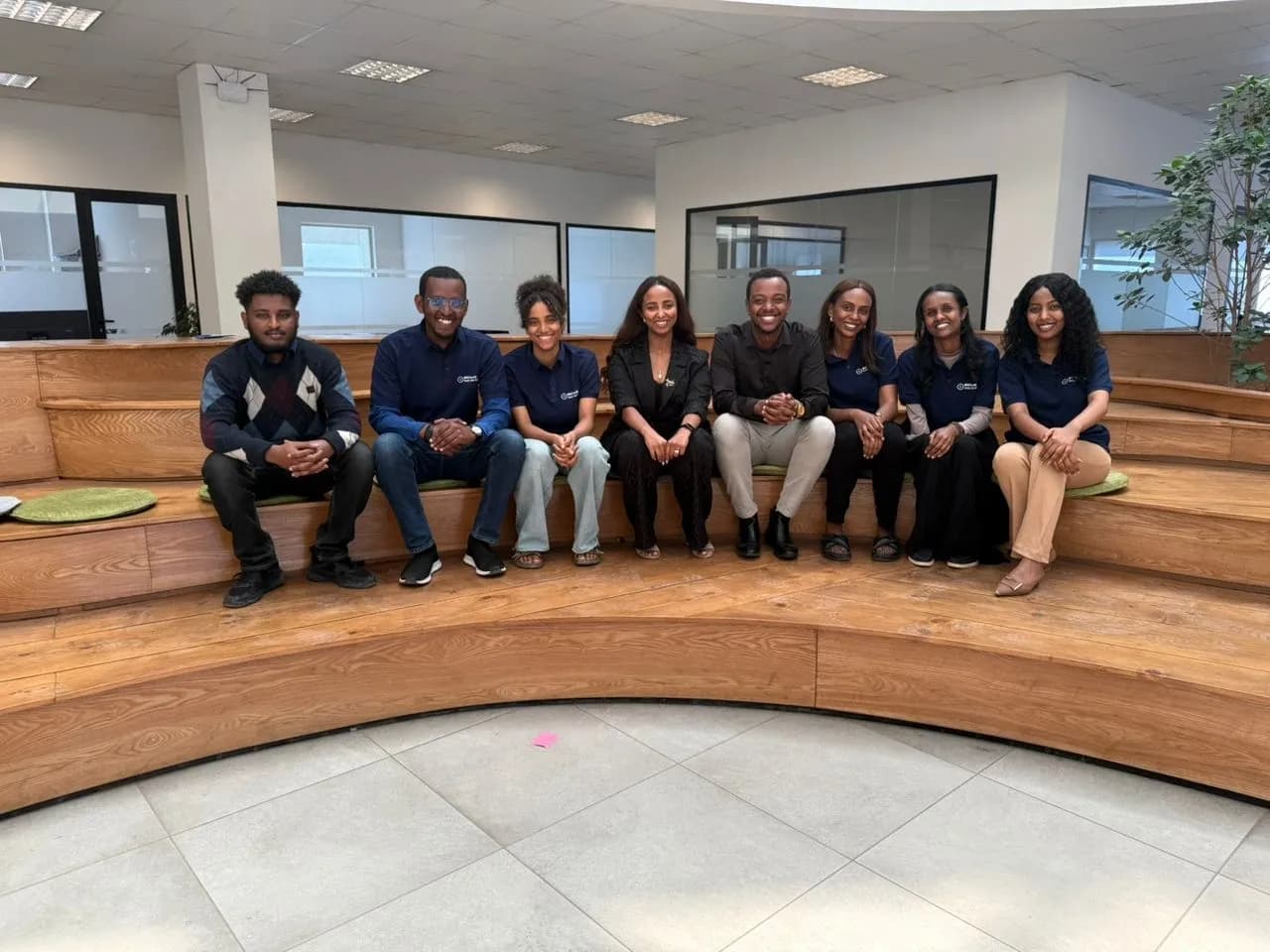Progress for 0 ad
Progress for 1 ad
Progress for 2 ad
Progress for 3 ad


Hasset Abebe
Addis Ababa, Ethiopia

During the peak of the COVID-19 pandemic in 2020, Ethiopia’s already strained healthcare system reached a breaking point. Hospitals closed their doors to non-emergency patients, ambulances became scarce, and pharmacies ran out of essential medicines. Patients spent hours in line for care that was often unavailable. It was amid this crisis that Bamlak Alemayehu, whose background spans clinical nursing, social work, and years in medical tourism, felt a strong urge to innovate.
Through her agency, Hope Medical Travel, she helped patients access treatment abroad, where digital healthcare services were already routine.
“The contrast was striking; people were suffering not because care didn’t exist, but because access was broken.” She told Shega.
In 2022, with an initial investment of 5.3 million birr, Bamlak launched a digital healthcare platform dubbed Medanit, an Amharic term for "medicine".
The platform’s core offering combines five services: Telemedicine, providing virtual consultations through a hotline (6636) at 6 birr per minute, with plans to make it free in the future to increase accessibility, and video calls; Medical appointment booking; consultation and delivery, where users can upload prescriptions online and have medicines delivered to their homes within an hour.
Patients who purchase medicine through the app also receive guidance on proper usage. Customized software development enables Medanit to build tailored electronic systems for hospitals, improving recordkeeping and digital performance.
The platform also uses location-based tools to help patients find nearby specialists, pharmacies, and diagnostic centers. Each service aims to reduce confusion and waste time. “People often don’t know where to go or which service they need first,” Bamlak says. “Now they can do everything, consultation, appointment, even medication delivery from one place.”
Bamlak says trust is built into their platform, which they reinforce by implementing rigorous strandards in selecting partner institutions and verifying licensing annually/
Medanit’s primary revenue comes from doctor consultations. When patients book with the platform’s in-house doctors, Medanit keeps the full consultation fee. For appointments with partner doctors, the company takes a 50% share. Additional income comes from medicine delivery fees, which include a base rate plus a per-kilometer charge.
The company recruits doctors in two ways: some apply directly by submitting their documents for approval, while others are onboarded through active scouting as the company works to expand and strengthen its network.
Today, Medanit partners with over 60 hospitals, including Girum General Hospital, Ethio Tebib General Hospital, Ayat Specialized Hospital, and Lanset Medical Center. It also works with specialized clinics such as International Clinical Laboratories (ICL) and Addis Clinic Laboratory (ACL), as well as prominent pharmacies like Gishen Belema. The network includes more than 500 doctors across various specialties. Patients booking through Medanit can receive discounts of up to 10%, depending on the partner institution, with payments processed via CBE, Coop Bank, and Telebirr.
Within two years, Medanit has grown to serve around 38,000 patients, facilitated 18,200 telemedicine consultations, delivered over 2,000 prescriptions, and completed more than 450 bookings. With a team of about 22, the platform generated 10 million birr in revenue in 2024 while maintaining affordable rates. This growth reflects a broader trend across Africa, where digital health platforms are expanding access to care despite persistent challenges such as infrastructure gaps and funding shortages.
According to the WHO-supported Global Digital Health Monitor 2024 survey of 47 African countries, digital health maturity varies widely, from Phase 3 in nations like Kenya and Nigeria to Phase 2 in others, highlighting progress in strategies and tools alongside ongoing needs for better interoperability and workforce readiness.
For Medanit’s founder, her experience highlights the early stage of Ethiopia’s digital health ecosystem. “Building something new in healthcare hasn’t been easy,” Bamlak says. “Access to finance is difficult, policies are complex, and people are still learning to trust technology. But we keep working, learning, and improving every day.”
Earlier this month, a state-backed digital health platform entered the nascent ecosystem, fueling anxieties across most startups working in the sector. Bamlak, like most other founders, wished the private sector had been engaged during the development process, but remains unbothered from a competitive standpoint. “The government could help with expanding adoption,” she says.” They may also help address some policy bottlenecks with direct market experience.
The startup plans to expand beyond Addis Ababa to cities such as Hawassa, Mekelle, Adama, and Bahir Dar, with the long-term goal of creating a digital network connecting doctors, labs, pharmacies, and patients. Responding to user requests, Medanit is also preparing to offer wellness packages and over-the-counter products, including skincare and supplements, to make the app more comprehensive. The founder was awarded at the Global Entrepreneurship Week 2025 for Promising “Entrepreneur of the Year.”
👏
😂
❤️
😲
😠

Hasset Abebe
Hasset Abebe is an intern at Shega Media and part of the Young Professionals Program at Shega. Her passions lie in content writing and digital media. She is also currently a student of Business Administration and Information Systems.
Your Email Address Will Not Be Published. Required Fields Are Marked *